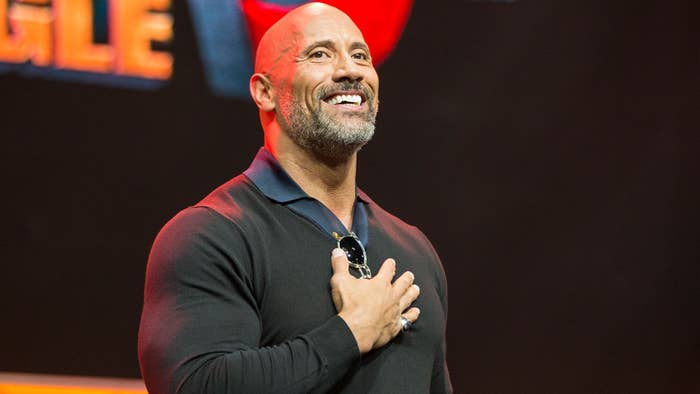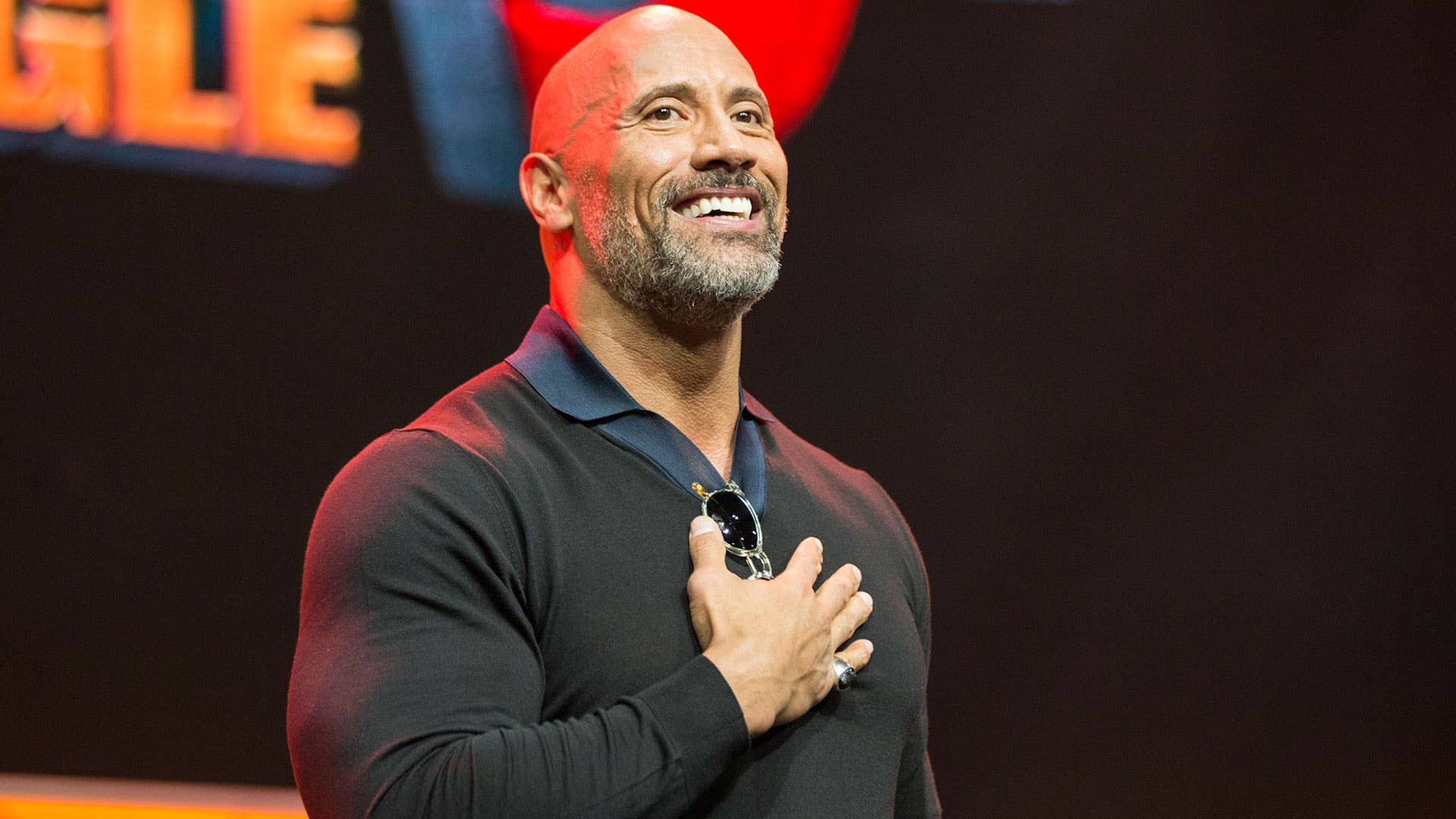
The Canadian Football League is looking at new avenues to grow, announcing last week that they are exploring opportunities to align with the XFL, an American football league. The news sparked discussions among analysts and fans regarding what that could mean, including speculation of a potential merger. That’s led some to think of the possibilities, while others have expressed concern about the Canadian league’s ability to stay, well, Canadian.
Actor and WWE legend Dwyane ‘The Rock’ Johnson is the figurehead for XFL ownership and has expressed excitement over the prospect of a partnership with the CFL. It is unclear whether negotiations between leagues is about mutual growth, or about mutual survival due to the effects of the pandemic on both enterprises. What that partnership could look like is anyone’s guess at this point, with both sides remaining vague on what the discussions will involve. It has been made clear, however, that the XFL is putting any future plans on the backburner until a potential partnership with the CFL has been explored. The CFL itself says it is aiming to have a season this summer but no concrete plans have been made public.
“Canada has an exciting game and devoted fans, and our discussion with the XFL provides a tremendous opportunity to build on that strong foundation. We look forward to exploring how we might work with one of the most innovative sports brands in the world to grow the game, engage fans in new ways, and reach new audiences. We look forward to seeing what possibilities our discussions might uncover, and to sharing those with our fans as the process unfolds,” said CFL Commissioner Randy Ambrosie as part of a league-issued statement.
The pandemic has taken its toll on sports leagues across the continent. Both the CFL and XFL lost their football seasons last year and the revenue opportunities that went along with them.This year’s CFL season will likely be hard-pressed to earn a profit as well, even when the teams do return to the field, due to restrictions limiting (or prohibiting) in-person attendance at games.The XFL made it just five weeks into its first season a year ago before being cancelled due to COVID-19 and ultimately filing for bankruptcy. Johnson bought the league for $15 million alongside business partners Dany Garcia and Redbird Capital. The plan is to play their second season—or third, if you count the original 2001 XFL—in spring 2022.
Johnson has his own personal history with the CFL. He was, now famously, cut by the Calgary Stampeders in 1995 just two months into that season, leaving him with $7 in his pocket. He shifted his gaze towards pro wrestling and the rest is history.
“There’s a real pulse here because you can feel the unique opportunity we can potentially create together,” said Johnson in an Instagram post last week. “Wherever it all leads (discussions with the CFL), I can tell you this one is personal to me and is driven by all my passion—because me being cut by the CFL was the greatest thing that happened. It set me on a path that years later would lead me right back to the league.”
The CFL has, for several decades, been a place for Canadians and Americans to play the game they love and make a living doing so. The Grey Cup has been around for more than a century. Some Canadian fans and commentators are already weary of what a partnership with an American league could mean. “The most important word in the Canadian Football League is ‘Canadian.’ To me, it’s essential,” said long time CFL play-by-play sportscaster Chris Cuthbert in a radio interview with the Scott Rintoul Show on Sportsnet 650. “I think the uniqueness of the game is what’s kept it alive. For many of us, it’s why we love it so much.”
“What better way to negate that arms battle between the CFL and XFL than by working together and becoming that second-best option, together?” – Derek Dennis
That anxiety has been a throughline for many Canadian fans since the news of negotiations broke. It is a Canadian league with its own traditions and ruleset. That includes playing three downs instead of four, playing on a larger field, and a game rule ratio that requires teams to have roughly 50 percent of their rosters be made up of Canadians. But as TSN’s CFL insider Dave Naylor noted, holding onto all of those traditions may not be an option if a partnership with the XFL could ensure the league’s future.
“The [CFL] knows there are huge risks to potential merger with [the XFL]. They know not all the rules and traditions will follow. So what does that tell you about the status quo? It tells me the status quo may not be an option. And that [the CFL] is weighing risks versus possible demise,” Naylor tweeted last week.
Derek Dennis is an American-born CFL player who has spent five seasons in the league—winning a Grey Cup and a Most Outstanding Offensive Lineman Award in that time. The 32-year-old has also been on NFL rosters and signed on for the XFL’s first season a year ago. Dennis says that he has the mindset that a merger between sub-NFL leagues would be beneficial.
“The CFL has been around for a long time, but the pandemic, I think, has evened the playing field in terms of having that spot for second-best league behind the NFL,” Dennis says. “I think, what better way to negate that arms battle between the CFL and XFL than by working together and becoming that second-best option, together?”
Many American football leagues have come and gone in the 100-plus years that the CFL has been in operation, including the Arena Football League and the Alliance of American Football. Though on opposite sides of the border, those leagues have been competitors with the CFL for talent on the field. Dennis signed with the XFL’s New York Defenders last year because they offered him a richer contract than CFL teams at the time, as well as the opportunity for him to play in his home country. He says that is an enticing prospect for any American-born CFL player.
“I wasn’t the first player that went through that scenario and I’m not going to be the last,” Dennis says. Many of the CFL’s players, including quarterbacks and other skill position players, are from the U.S.
A merger could also provide the opportunity to expand the CFL’s reach more into the football-crazed U.S. market according to Dennis.It makes sense to him for the two leagues to support each other, share talent, and share fans in both countries.
“Everyone understands that the NFL has a stronghold on [the U.S. market], but there is still some appetite for football outside of the NFL,” Dennis says. “You’ve got to find a way to build revenue to weather the storms that will come about…. Both leagues want to weather the storm.”
The NFL and the American Football League merged in the 1960s to form the modern NFL. The value of sports history can be a touchy subject, however, especially when it is tied as closely to a nation’s culture like the CFL is to Canada. But innovation may be the only way forward and the CFL has opened the door at least to that possibility.
“Do you want to stay traditional and think that’s going to go the way it has for the first 100 years, or are we going try to find a way to innovate and be different?” Dennis asks. “That way we can grow with the rest of the game and not be left behind.”

